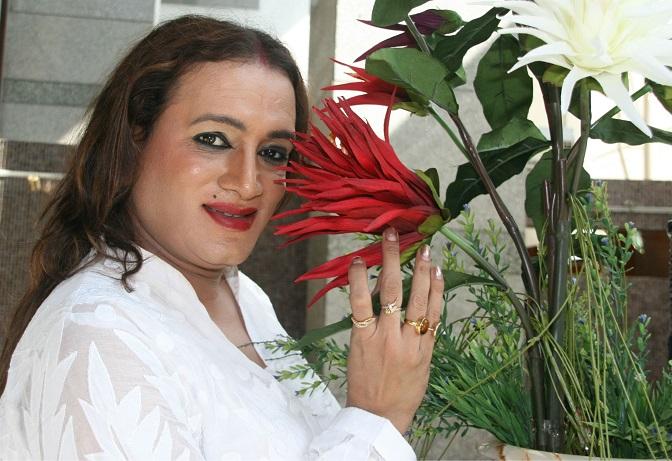INDONESIA
New Era for India
"Transgender people in India now has a separate identity to man and woman."
Devie Boerema

India’s Supreme Court recently recognized transgender as a separate gender group, distinct from traditional male and female identities.
The verdict came in response to a petition filed by the National Legal Services Authority.
One of them is Laxmi Tripathi – who is in Mumbai a day after the historic ruling for a conference on HIV awareness for transgender people.
“I’m really proud of being an Indian transgender. This is my right, what the Supreme Court has given me. It’s the right to choose whatever I want to.”
She believes the court decision is an important step towards ending discrimination against transgender people.
“One of the judges said the countries development is not about its economic growth but it’s about human development and that took a wonderful course in my heart and it is percolated till my soul.”
Ernest Noronha was also one of the petitioners.
She identifies herself as a woman but doesn’t dress in the style of a typical Indian woman in a sari. She’s part of the United Nations Development Programme and was the first person to file the petition to the court.
For her, the most important issue now is health.
“I think India is one of the few countries in the world that is very progressive on HIV issues in the transgender community issues. With this now I think it’s going to look at the other health issues that are not covered... like sex reassignment surgery, hormonal therapy, old age issues, people who are below poverty line getting access to healthcare. I think these are some of the major issues coming out of this judgment.”
Transgender people are often called eunuchs or hijras in India, a reference to cross-dressers and castrated men.
In traditional Hindu culture, transgender people are seen as auspicious and play an important role in society. Hijras are often invited to weddings and birth celebrations to bless the baby or the newlyweds.
But this practice of inviting hijras has become less popular in recent years.
“They are still considered as an exclusion group. The fact is because you’re a Hijra your ostracised and continue to live separately.”
With limited jobs available, many of them end up on the streets… making them more vulnerable.
“I always said that one thing that I have noticed and I have always quoted, that the society forces the transgender women and the hijras in to sex work. Because there is no other means of earning and living their lives and this is how the world was till yesterday for us.”
After the Supreme Court ruling, transgender people will be included in welfare schemes offered to other minority groups.
And the government will provide jobs, places in schools and medical care for them.
All official documents will also have a separate option for transgender… an extra box on a piece of paper.
This might seem a small thing, but for Laxmi, this will make a significant difference to many people lives.
“I would have been a lawyer by now. I would have had an option to be a doctor or a sweeper, if these things would have been there.”
- India
- transgender
- Supreme Court
- legal status for transgender
Komentar
KBR percaya pembaca situs ini adalah orang-orang yang cerdas dan terpelajar. Karena itu mari kita gunakan kata-kata yang santun di dalam kolom komentar ini. Kalimat yang sopan, menjauhi prasangka SARA (suku, agama, ras dan antargolongan), pasti akan lebih didengar. Yuk, kita praktikkan!